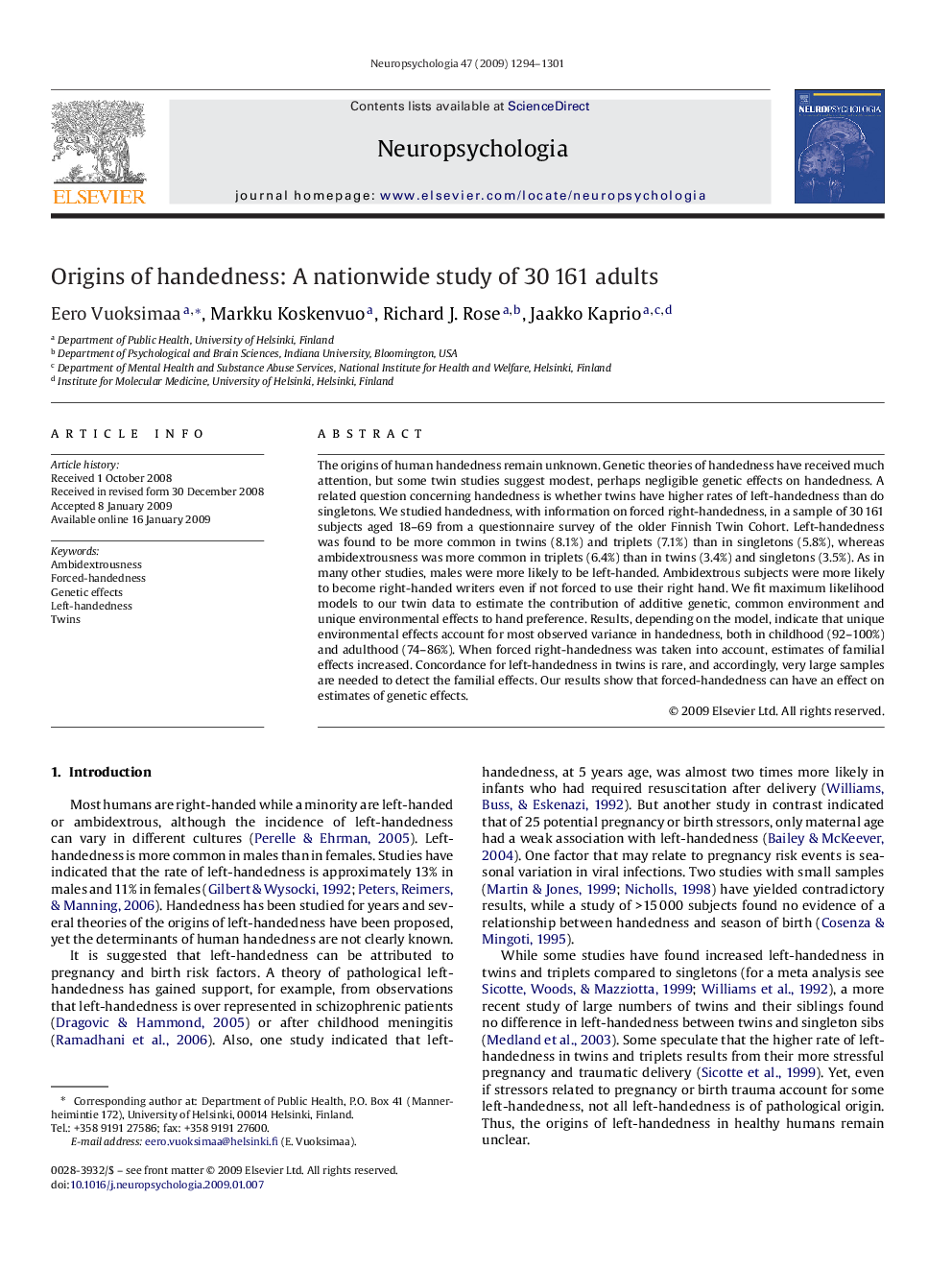| کد مقاله | کد نشریه | سال انتشار | مقاله انگلیسی | نسخه تمام متن |
|---|---|---|---|---|
| 945106 | 925756 | 2009 | 8 صفحه PDF | دانلود رایگان |

The origins of human handedness remain unknown. Genetic theories of handedness have received much attention, but some twin studies suggest modest, perhaps negligible genetic effects on handedness. A related question concerning handedness is whether twins have higher rates of left-handedness than do singletons. We studied handedness, with information on forced right-handedness, in a sample of 30 161 subjects aged 18–69 from a questionnaire survey of the older Finnish Twin Cohort. Left-handedness was found to be more common in twins (8.1%) and triplets (7.1%) than in singletons (5.8%), whereas ambidextrousness was more common in triplets (6.4%) than in twins (3.4%) and singletons (3.5%). As in many other studies, males were more likely to be left-handed. Ambidextrous subjects were more likely to become right-handed writers even if not forced to use their right hand. We fit maximum likelihood models to our twin data to estimate the contribution of additive genetic, common environment and unique environmental effects to hand preference. Results, depending on the model, indicate that unique environmental effects account for most observed variance in handedness, both in childhood (92–100%) and adulthood (74–86%). When forced right-handedness was taken into account, estimates of familial effects increased. Concordance for left-handedness in twins is rare, and accordingly, very large samples are needed to detect the familial effects. Our results show that forced-handedness can have an effect on estimates of genetic effects.
Journal: Neuropsychologia - Volume 47, Issue 5, April 2009, Pages 1294–1301